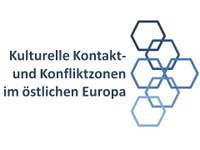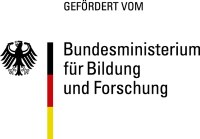Project Description
The thematic network, “Zones of Cultural Contact and Conflict in Eastern Europe”, explores imperial and national-linguistic border zones, transitional regions and conflict zones as well as urban areas that are characterised by ethnic, linguistic, denominational and other culturally-shaped scenarios of contact and conflict. We also take into account those zones of conflict that no longer exhibit the rich cultural diversity they once possessed but in which this former diversity nevertheless till plays a significant role in memory and identity politics, as well as in historical and literary reflection.

Six Eastern-European partners of the Network are especially suitable for this research cooperation:
- Almaty (Kazakhstan): place of interaction between Turkic- and Russian-speaking societies
- Kazan (Russian Federation, Tatarstan): Russian-Tatarian contact zone
- Cluj-Napoca (Romania): Romanian-Hungarian-German-Jewish contact zone
- Kyiv (Ukraine): Ukrainian-Russian contact zone
- Łódź (Poland): Polish-German-Jewish interaction
- Minsk (Belarus): Belarusian-Polish-Russian-Jewish contact zone
Institutions Responsible for the Project
The Giessen Centre for Eastern European Studies (GiZo), founded in 2006, is the regional studies research and teaching centre for Eastern Europe in Hessen. It incorporates Slavic studies, the history of Eastern Europe and Turkology in combination with political science, law and economics. Combining cultural and social sciences, its research on Eastern Europe creates the optimal conditions for an interdisciplinary investigation of the region.
The Herder Institute for Historical Research on East Central Europe – Institute of the Leibniz Association (HI), founded in 1950, is one of the key institutions in Germany for historical and cultural research on East Central Europe. The institute offers one of the best specialized libraries as well as a large collection of sources and carries out numerous research and development projects.
Key Research Points of the Network
The overarching research prospects and topics that govern research, teaching activities and professional cooperation (amongst complementary disciplines and across several geographical locations) within the Network are the following:
- Imperialism and nationalism
Questions of the relationship between linguistic and territorial, individual and collective elements in the concepts of nation and state; issues of long-term effects and cultural-memory dynamics of political and ideological breaks, declines of states and border changes.
- Multilingualism and language contacts
Linguistic awareness and behavioural roles, linguistic prestige and language politics, intersections between linguistic-ethnic and denominational identities, dynamics of contentious interaction models, language politics as a potential for conflict or an ethnic integration factor.
- Regionalism and regional studies
Development of regionalisms and regional languages, regional literary history, history of law of majority-minority relationships, management of loyalty towards groups and communities.
- Urban History and urbanisation
Issues of city-land relationships as well as patterns of migration and diaspora, linguistic structuring of urban space, phenomena connected with transitions between nationally marked and subsequently ‘modernised’ urban spaces, re-moulding according to the model of a socialist town.
- Translation and cultural transfer
Translation and transferral of texts into other linguistic and cultural fields, history of tradition, attempts at an adaptation of cultural possessions of other regions and languages for one’s particular social group.
- Text types and narrative studies
Forms of fictionalisation, utopiansation or ideologisation of cultural contacts (‘borderland novel’, ‘Aufbauroman’, i.e. the novel of industrial formation of the GDR), formation of identity via literature, romanticisation and harmonisation of multiculturalism (‘Central Europe debate’), literature of loss (e.g. comparative study of Holocaust literatures).
Project Goals
- Extension of the previous partnerships to a multilateral thematic network
- Development of funding instruments for young researches with partners in Eastern Europe
- Development of a trinational degree course with partners in Eastern Europe (in linguistics, literary studies and history)
- Development of modules for scientific communication within cross-border research and teaching
- Regular publications on the key research topics of the Network
Cooperation Activities
- Study and research stays for doctoral students and young researchers in Germany and partner countries
- Short-term stays for visiting professors, block lectures
- Workshops, Summer Schools, Master Classes
- Conferences
 |  |
|
|---|---|---|
 |
 |


